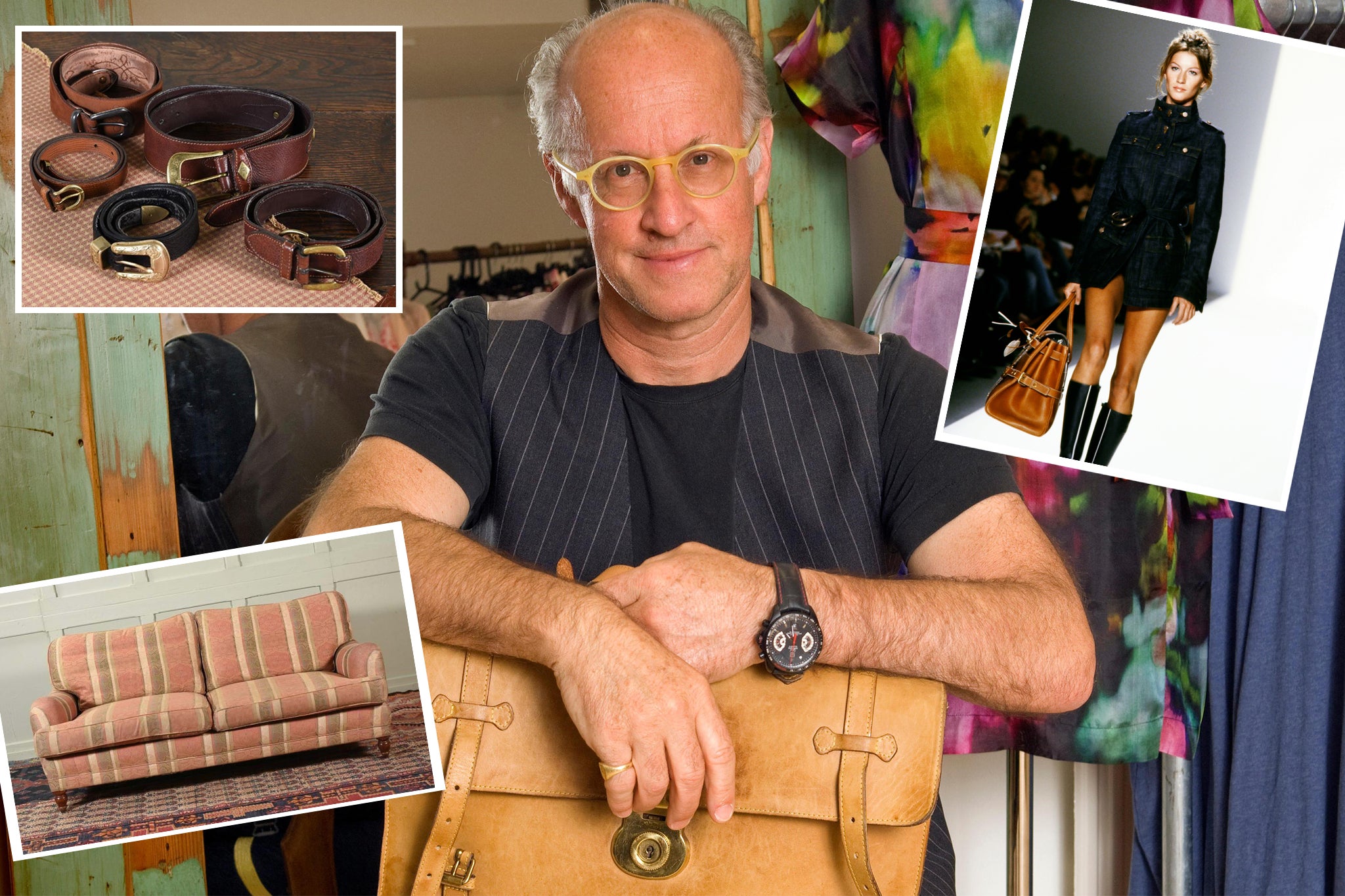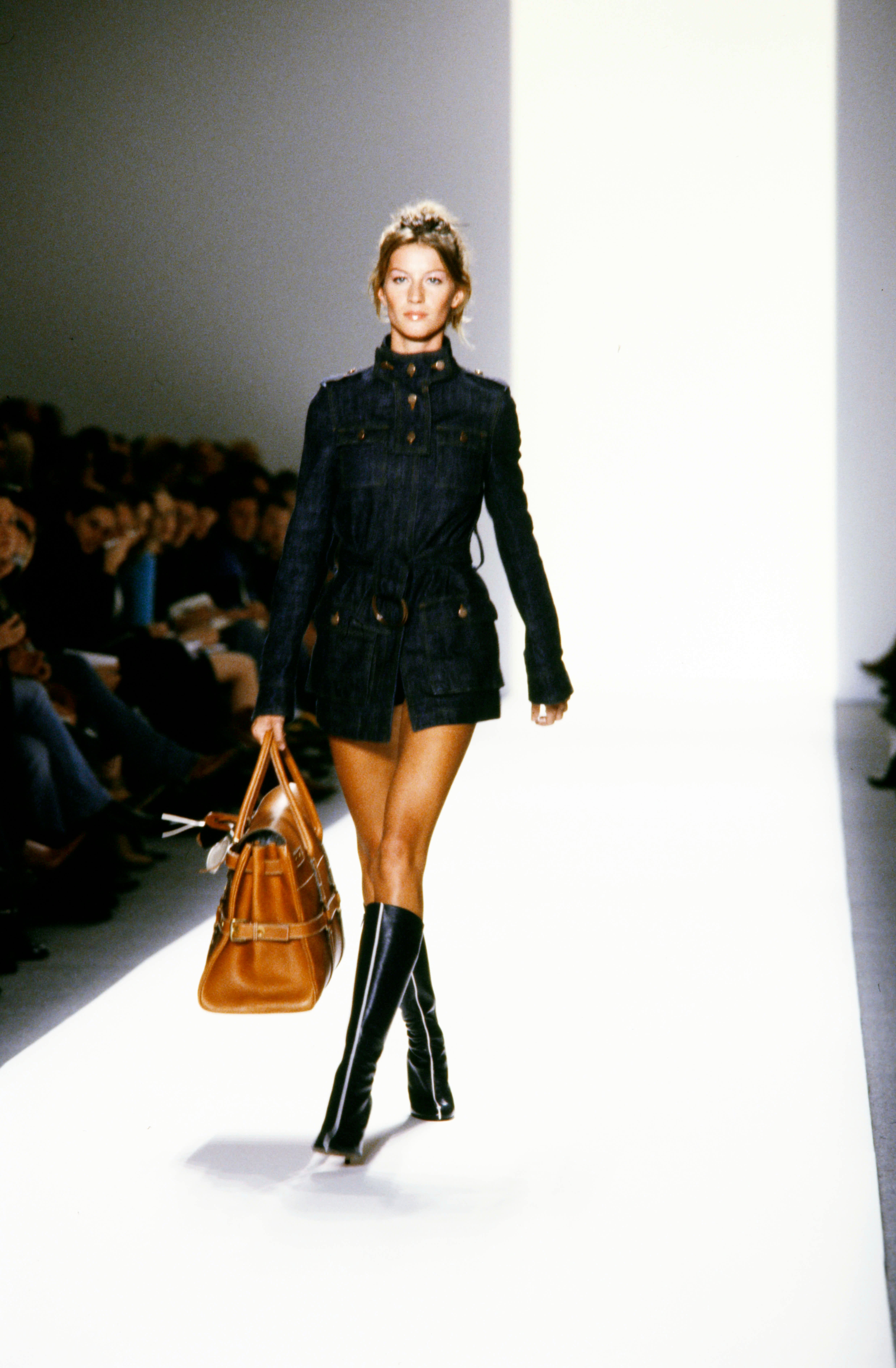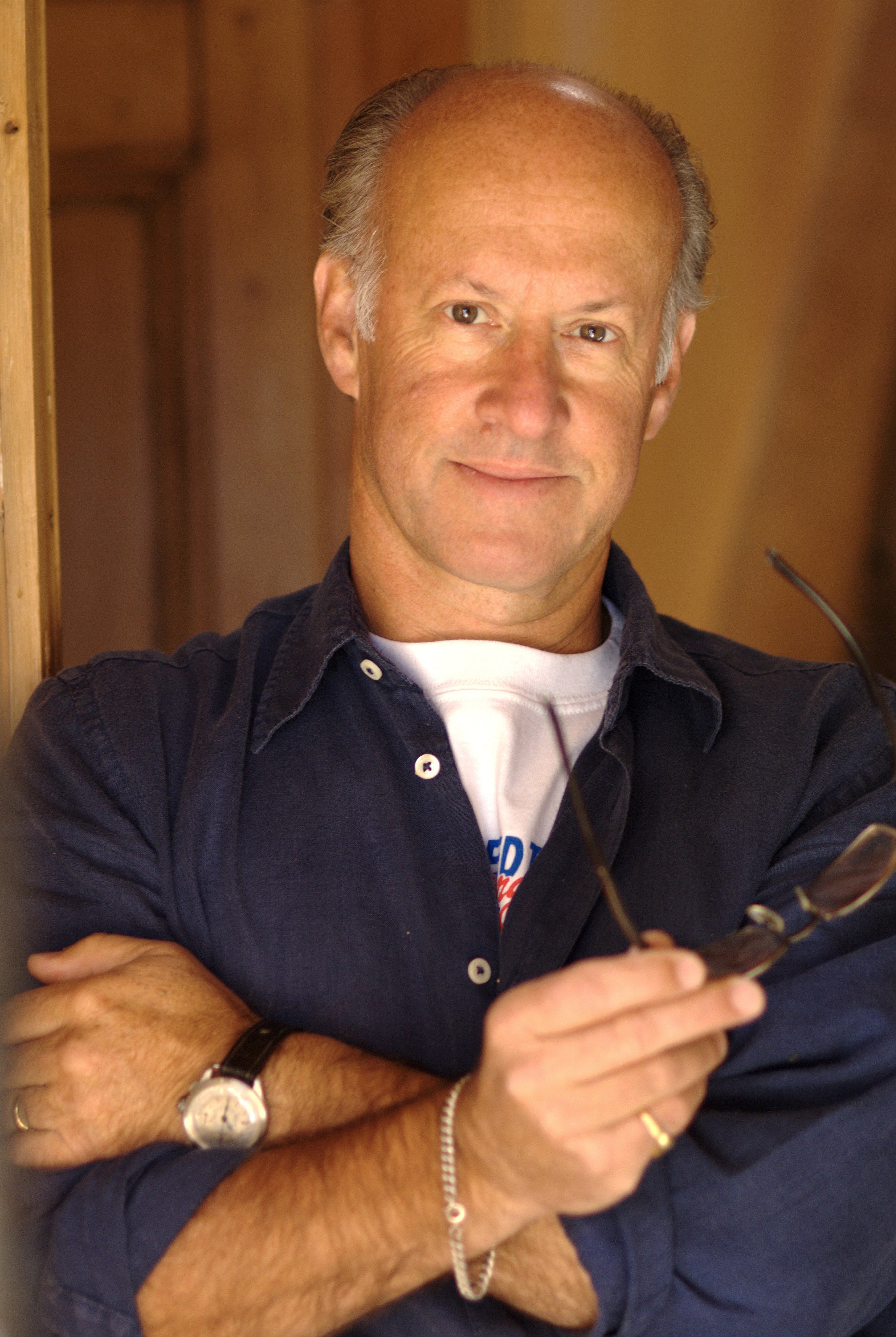‘Luxury has become a bad word’: Mulberry founder prepares to sell off his private collection
Roger Saul’s career has taken him from high-end fashion to walnut farming. Ahead of an auction of his private archive, he talks to Laura Craik about boardroom coups, the role of luxury, and embracing the future

Reinventions? Roger Saul has had a few. Few can boast of a career that spans luxury fashion, homeware, hospitality, food and farming, but Saul has done it all – a jack of all trades, and a master as well.
The TikTok generation probably don’t even know that he founded Mulberry – the fabled, but currently troubled, British handbag brand beloved by Kate Moss, Angelina Jolie, Oprah Winfrey and the Princess of Wales.
Saul is not a man to blow his own trumpet, however loudly he has cause to. He is, however, a man of pragmatism. This is why, due to an impending house move, he’s auctioning off his private archive of handbags, shoes, clothes, furniture and personal memorabilia next month.
Speaking over Zoom from his home in Somerset, Saul looks far younger than his 74 years, his zest for life apparent even through a screen. When I suggest that this treasure trove of stuff must be hard to part with, he’s sanguine.
“Yeah, but we seem to have spent our life creating things and then moving on, either under pressure or because we wanted to. We’re quite good at retreating, as well as going forward. I just embrace every new bit of life that comes along.”
He launched Mulberry in 1971, manufacturing bags, belts and smaller leather accessories at a factory in his native Somerset – a pioneer of the “made in Britain” movement, as he’s been of so many others.
A potted history of his trailblazing includes selling fashion as a lifestyle concept (Le Style Anglais, as Mulberry was dubbed by the French press in 1975), global franchising (used to fund rapid international expansion in the 1980s), fashion as homeware (1990) and reinventing the “It” bag (2002’s Gisele).
That he’s also owned a Michelin-starred restaurant in an award-winning hotel (Charlton House), a designer outlet centre (Kilver Court) and a 270-acre farm growing the UK’s only spelt crop (Sharpham Hall) makes one wonder if, like Beyoncé, he has more than 24 hours in his day.
At the turn of the 21st century, the brand was riding high. In 2001, the British designer Luella Bartley asked Saul whether she could collaborate with Mulberry on a bag for her New York fashion show. Before you could say “Jane who?”, out strutted the Brazilian supermodel, Gisele Bündchen, swinging a capacious leather tote embellished with straps – and a British “It” bag to rival the Birkin was born. At £500, it was considerably more affordable than Hermes’ cult tote, which only added to its glory.

Coverage was global and universally effusive – which made what happened next rather shocking, even in the cut-throat world of fashion. Less than a year later, Saul’s 33-year run at Mulberry had come to an end, after a coup by its new Singaporean investor, Christina Ong.
“Almost as soon as Christina Ong had bought her shareholding, it became very clear that she wanted me out,” says Saul. “We made a big mistake, which is easy to say in retrospect. We’d done a lot of negotiating in Japan, and had some very tricky situations with bankers and corporations.
“You learn in Japan that it’s all about respect for each other, and being angry or tough doesn’t work at all. Big mistake when working with the Chinese. You don’t negotiate – you take a position, and you hold that position and try to advance from it. We made the mistake of thinking that the Japanese negotiating tactic would be the right one: ‘How can we accommodate what you want?’”
It was a stance that would cost him everything. “We probably gave [them] too much space in the early period, thinking it was about good relations. And instead, they were just constantly testing the edges to see where our weakness was so that they could try and get through.”
In the end, Saul was ousted after Godfrey Davis, deputy chair of the company, switched allegiance and backed Ong.

“We should have known better; done more research on Ong’s past before we brought her in. That was our fault. But Godfrey was something else. That was tough – and pretty devastating.”
And so Saul made the almighty pivot from fashion to farming. Sharpham Hall came up for sale the same year, on the market for the first time in a century. He took it as a sign, launching himself into organic farming. “I think [the Ongs’] biggest fear was that I’d reappear as Roger Saul the designer, as a brand, and that would ruin Mulberry. But a friend told me to never, ever go backwards. Once you’ve done something, always move on to the next thing.”

That he’s remarkably unbitter is partly because he believes he was extremely lucky to work in fashion during its golden years, when creativity was high and anything was possible. And while he keeps only a cursory eye on the catwalks these days, he has firm opinions about why his baby is currently in the doldrums.
“Mulberry's biggest mistake was to try and become luxury as opposed to aspirational. They deserted their core customer base when they went from a £350/£500 handbag to a £750/£1,500 one. Would the Hermes, Gucci or Prada customer suddenly want Mulberry? That’s a tough ask. You’ve got to be very clever, if you go into that zone, to be able to succeed.”
He also believes that the definition of luxury has changed. “Today, luxury is almost a bad word. It should be more about what’s special and amazing. People are looking for preloved and vintage – treasured pieces, rather than necessarily having to have the newest and the latest. When you look at what’s happened with Covid, Brexit, and the wars around the world, it’s just the wrong time to be conspicuously looking fabulous.”

If he were to buy his wife a new handbag, which brand would it be from? “I just wouldn’t. I’ve got so many still in the cupboard. Monty [his wife] wouldn’t let go of most of them. We’ve probably still got another six sales’ [worth] in our cupboard here. If I was buying a handbag, I’d probably be doing it in Italy, where creative design is flourishing, or potentially Spain, because they’re two great leatherworking countries.”
He’s been married to Monty, a former Dior model, for 47 years. What’s their secret?
“We’re good friends, good lovers, good enemies,” he beams. “Monty is feisty. She’s the most amazing lady – the glue that makes it possible for me to do what I do, because I do far too much and get away with it. But at the same time, she loves me, so I’m very lucky.”
Having been forced to abandon spelt farming during Covid, he’s now focused on producing walnuts. “It takes about 20 years for walnuts to mature and get a crop,” he says, as though this were a good thing. “Our first major crop, we sold through Riverford last year, and this year, we’ll get a much bigger one as the trees grow.”
Are the walnuts enough to live off? “Oh no. We’ve been fortunate enough to create enough out of what we’ve done to survive. But it will give a nice return and carry on growing. I’d love to see us doing walnut oil and all sorts, because we’ve got about 300 trees altogether.”
How symbolic that Saul’s latest – though undoubtedly not his last – passion project should involve walnuts, one of the toughest nuts of all.





Join our commenting forum
Join thought-provoking conversations, follow other Independent readers and see their replies
2Comments